An Event Dedicated to Discussing the State of Judicial Independence in the Context of Ukraine’s European Integration was Held with the Support of EU Project Pravo-Justice
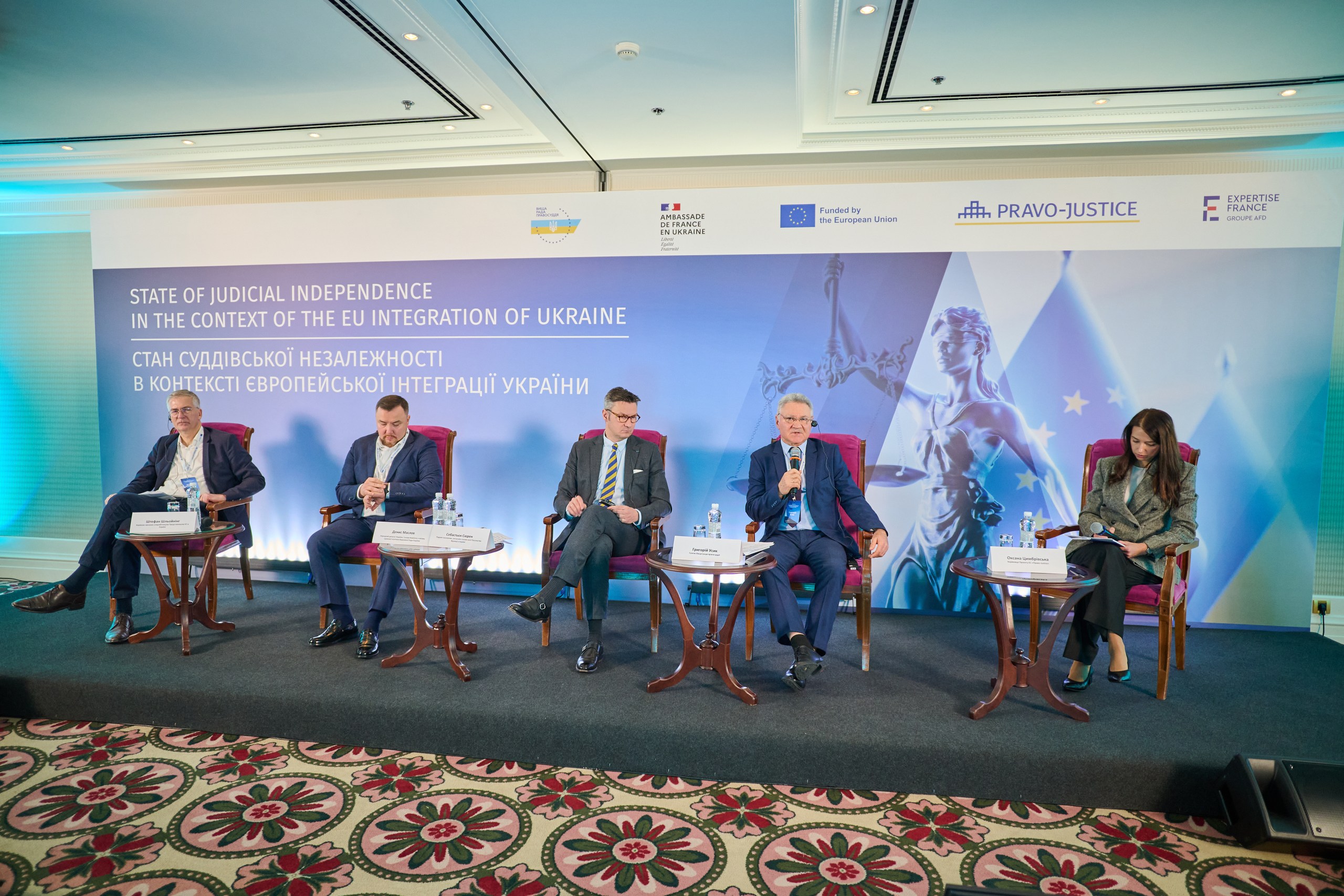
On 24 October, Kyiv hosted an event dedicated to the “State of Judicial Independence in the Context of Ukraine’s European Integration”. The event was organised by EU Project Pravo-Justice, implemented by Expertise France, in cooperation with the High Council of Justice and the Embassy of France to Ukraine.
The discussion, important for achieving the strategic objective of the Rule of Law Roadmap in terms of strengthening the independence of judges and preventing interference with their activities during administration of justice – was attended by MPs, judges, justices of the Supreme Court, members of the High Council of Justice and the High Qualifications Commission of Judges of Ukraine, representatives of the State Judicial Administration, the High Council of the Judiciary of France, the European Network of Councils for the Judiciary (ENCJ), as well as Ukrainian journalists and justice experts.
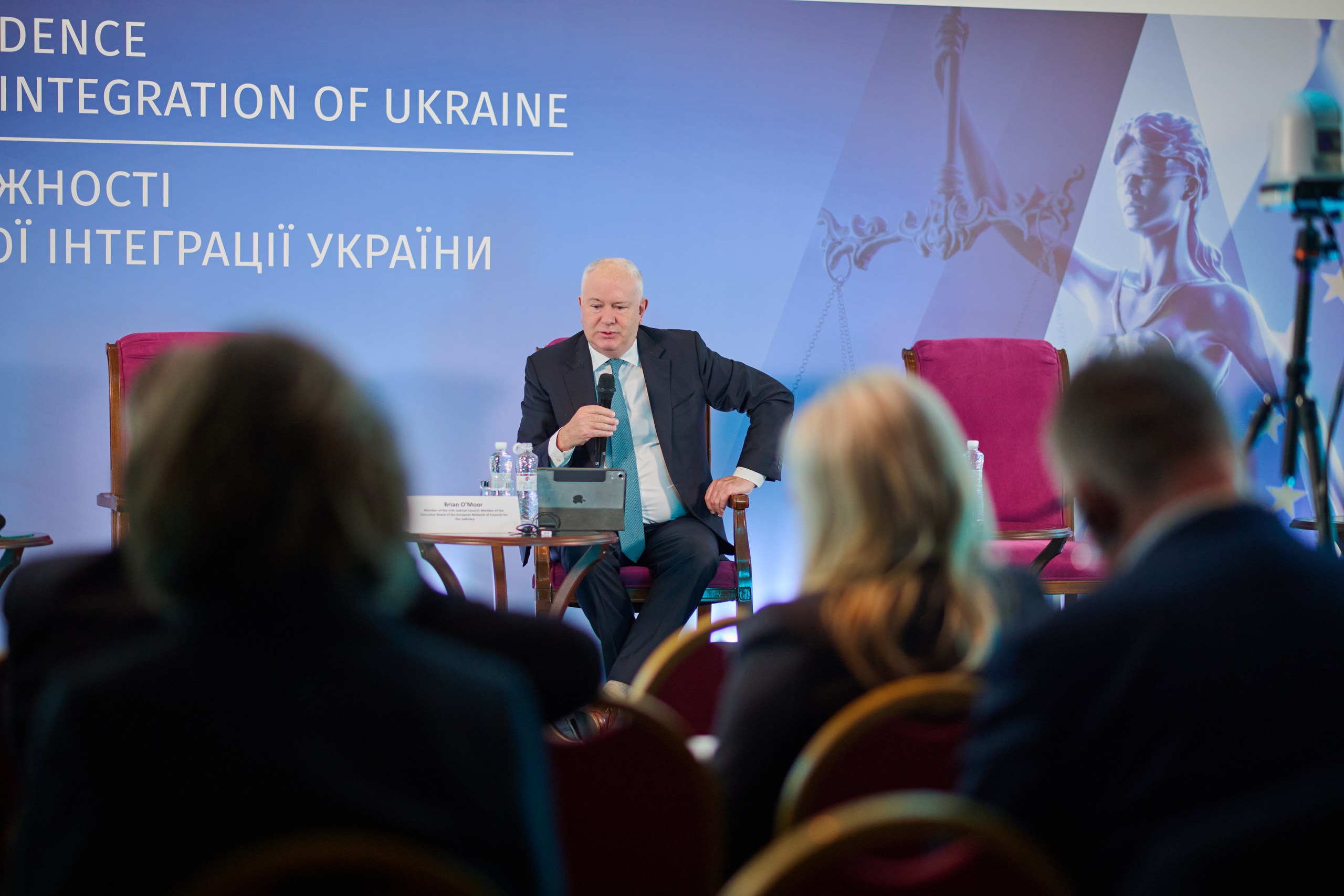
During the event, Judge Brian O’Moore, Member of the Irish Judicial Council, Member of the ENCJ Executive Board, and Frans van Dijk, professor and analyst at the ENCJ Office, presented findings of the annual survey conducted by the ENCJ and dedicated to the state of judicial independence in Europe. The participants then discussed internal and external factors affecting the independence of judges, including disciplinary liability, recruitment procedures, judicial workload, interaction of national courts with EU courts, as well as interference with the work of judges, information attacks, media and public attention to the administration of justice.
Particular attention was paid to the French experience of preventing influence on the judiciary and to discussing legislative and institutional changes necessary to strengthen judicial independence in Ukraine in the context of European integration.
It is worth noting that Ukraine took part in the ENCJ’s comprehensive survey for the first time (in general, the survey was held for the fifth time). Unfortunately, among the 30 countries that took part in the assessment, Ukraine received the lowest overall independence score – 5.9 points out of 10. In particular, serious challenges have been observed in the area of HR procedures, disciplinary practices, and protection of judges from external influence.
Hryhorii Usyk, Chairman of the High Council of Justice, noted that judicial independence was not just a sign of a democratic state, but its foundation. Without independence, there can be no talk about the rule of law, public trust in state institutions, or justice, which is in great demand today.
“That is why we must frankly discuss the internal and external challenges faced by the judiciary and jointly look for ways to overcome them, including through possible legislative initiatives. In particular, it is important to pay attention to those provisions of the draft state budget for 2026 that cause concern in the judicial community due to the risks to proper financial support of judges,” he said.
Denys Maslov, Chairman of the Verkhovna Rada Committee on Legal Policy, said that the issue of judicial independence was one of the key issues for the development of the rule of law.
“Judicial independence is not an abstract concept. It is, first of all, about the creation of such conditions under which a judge can do his or her job without any pressure – in a properly equipped environment, with decent pay, confidence in the future and respect from the society,” MP said.
During his speech, he promised to take into account the issue of proper funding of the judiciary when considering the budget for the next year, including the logistics support of first instance judges and court staff.
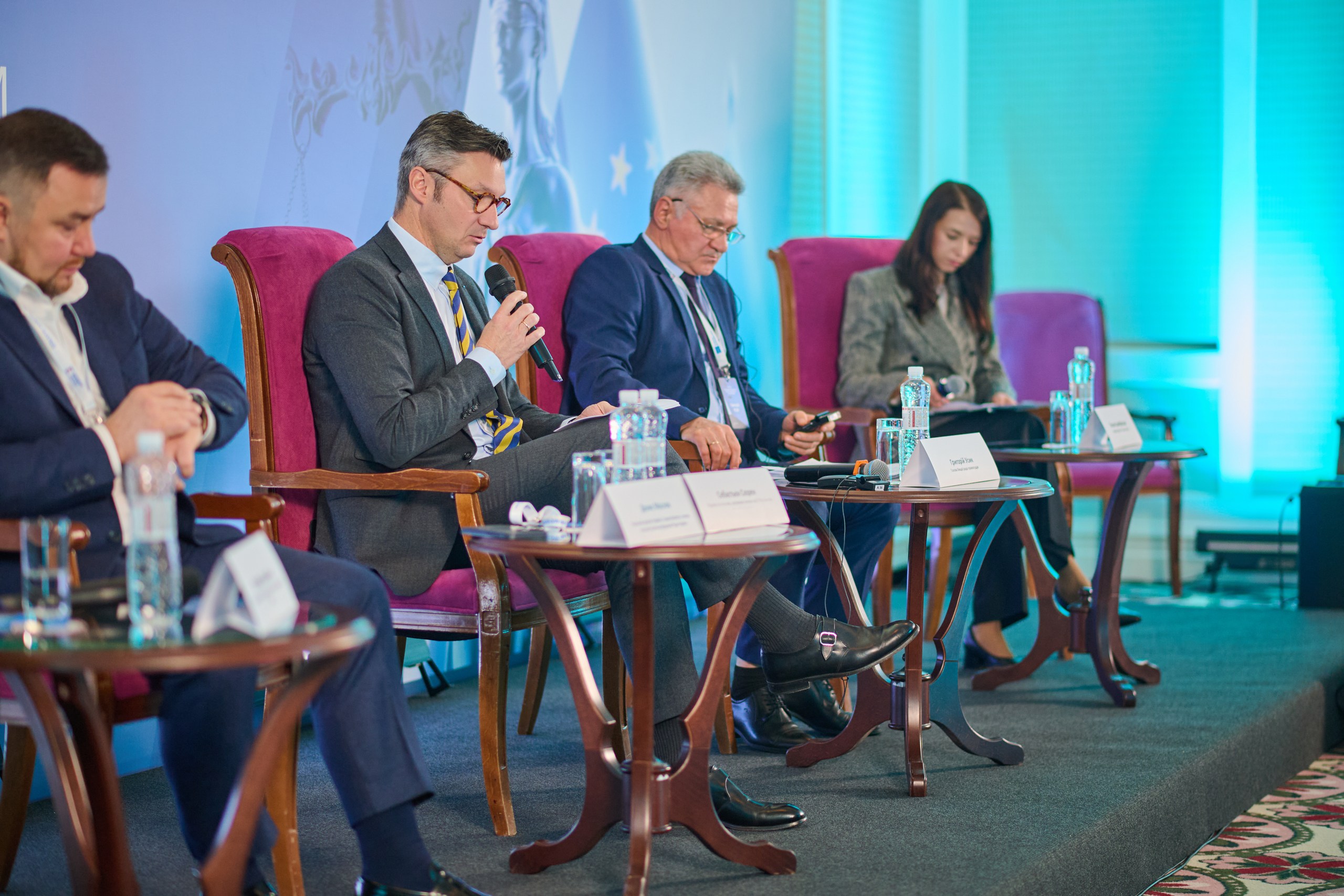
According to Sebastien Surun, Charge d’Affaires of the French Embassy to Ukraine, the principle of judicial independence is an integral part of the rule of law. At the same time, judicial independence must be coupled with accountability, as judges are part of a democratic society.
"We are convinced that a dynamic balance between independence and accountability requires not only legislative changes, but also investments in the people who work in the judiciary. That is why the European Union and France support Ukraine through the Pravo-Justice programme implemented by Expertise France,” he said.
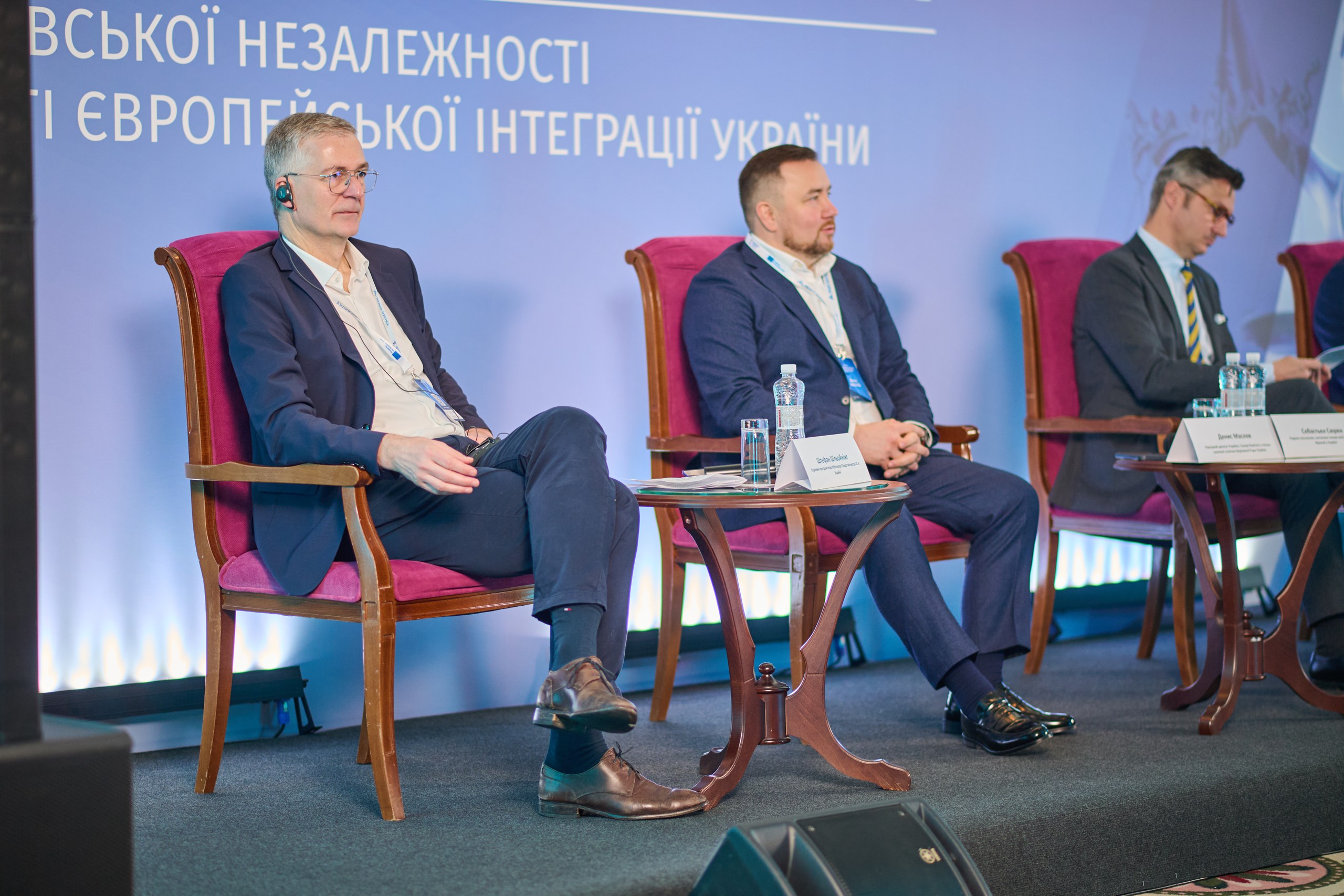
Stefan Schleuning, Head of Cooperation at the Delegation of the European Union to Ukraine, stressed that strengthening the independence of the judiciary was a central element of the broader reform agenda required for EU membership. Without a judiciary that operates free from political influence, fights corruption and enjoys public trust, the effective application of EU legislation will be impossible.
“Reform of the judiciary and guaranteeing its independence is a cornerstone of Ukraine’s European integration. We have seen the progress made by Ukraine in recent years and the European Union will continue to support these efforts through our programmes, including the EU's flagship rule of law project, Pravo-Justice," he said.
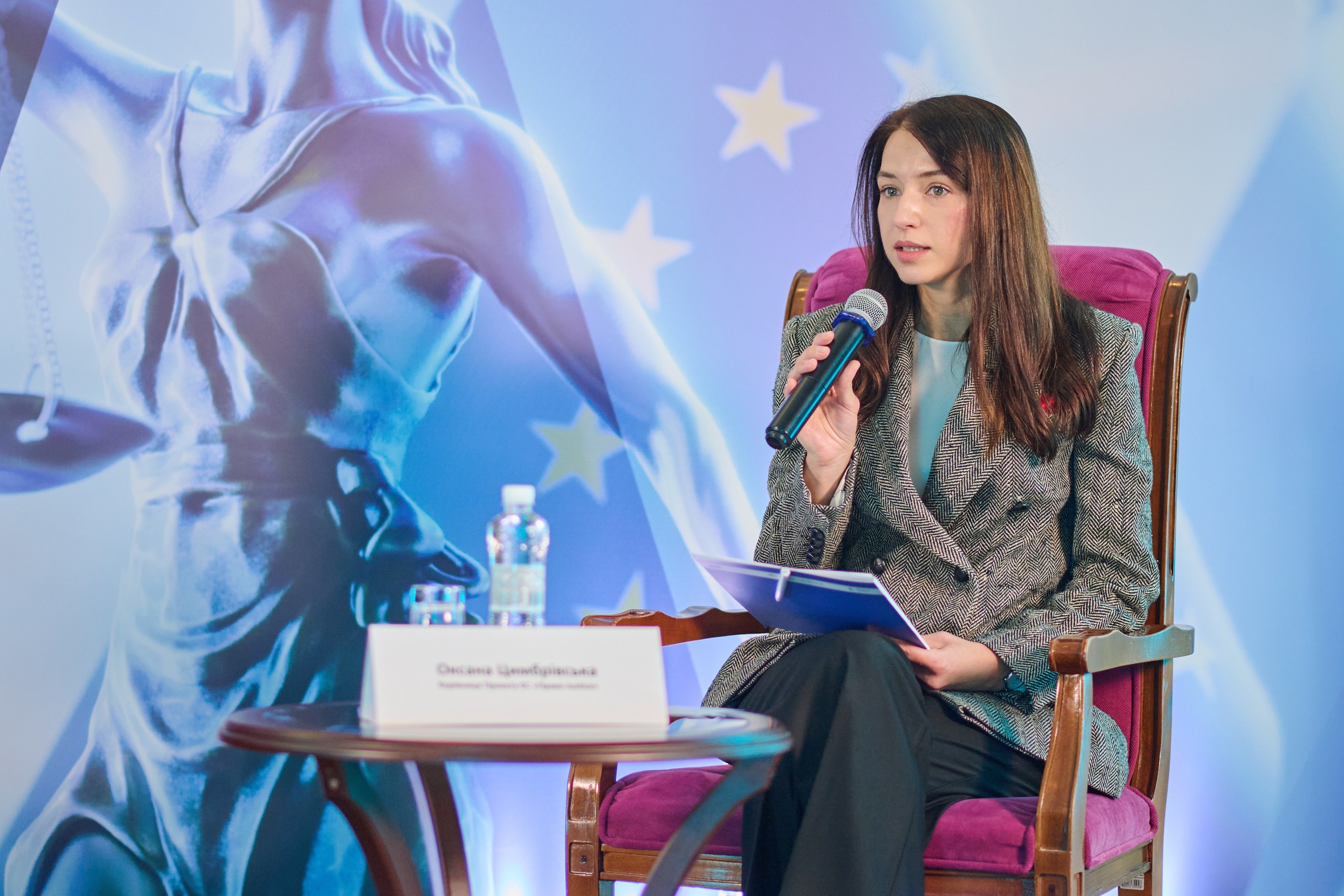
Oksana Tsymbrivska, Team Leader of EU Project Pravo-Justice, drew attention to the fact that the European Network of Councils for the Judiciary, in its Riga Declaration 2025, had stressed that citizens should understand that an independent court was not a privilege for judges, but their personal guarantee of security, justice, and economic stability.
“This is, in fact, our common goal. We have to make sure that the concept of judicial independence ceases to be just a topic of professional discussion and becomes part of civic awareness. People need to understand that a strong, independent judiciary is a guarantee that business operates in a predictable environment, that the state fulfils its obligations, and that the rights of every citizen are actually protected,” said Team Leader of EU Project Pravo-Justice.
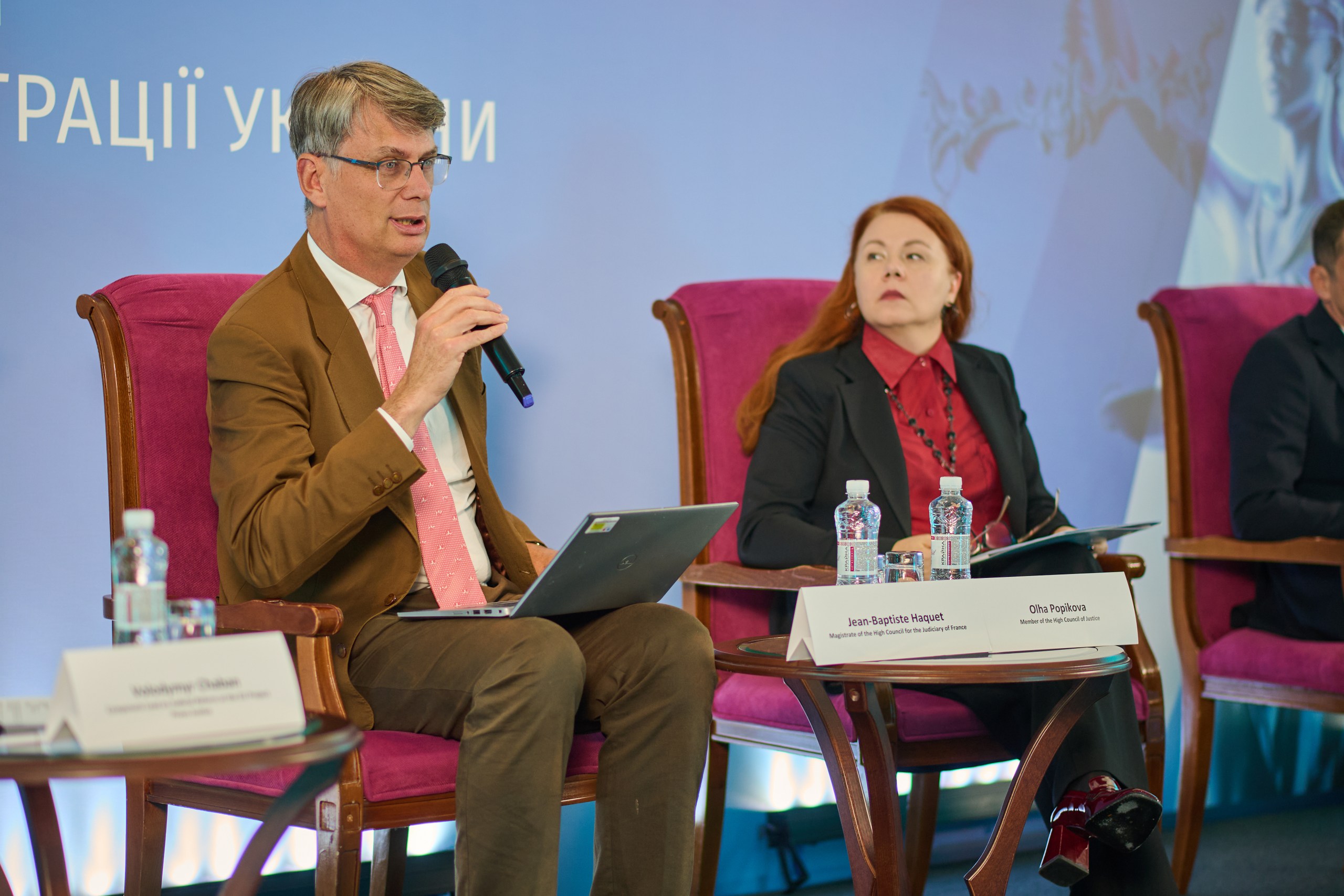
Jean-Baptiste Haquet, magistrate of the High Council of the Judiciary of France, said that an important feature of the French system was the unity of judges and prosecutors. They belong to the same corps of magistrates and have common training. One can become a magistrate only through an open competition, which makes it impossible to exercise political influence.
“Such competitions are based solely on one’s professional skills, rather than on the influence or political weight of the candidate seeking to become a magistrate. That is why, in my opinion, this is one of the key prerequisites for the independence of the judiciary in France,” he said.
He also noted the role of adequate funding in ensuring the independence of the judiciary.
“If there are not enough judges or their work is underestimated, the system loses its stability and becomes an easy target for pressure. It is equally important to provide resources for communication, as the judiciary shall be able to respond to public challenges and protect itself from distorted interpretations. Building independence is an ongoing process that can never be considered complete,” he said.
Virgilijus Valancius, Senior International Expert at Project EU Pravo-Justice, delivered a presentation on cooperation between national and EU courts while intervening at the event. Olha Sribniak, Deputy Team Leader at EU Project Pravo-Justice, took part in a moderated discussion on legislative and institutional changes needed to strengthen judicial independence. In turn, Volodymyr Chaban, Judicial Reform Component Lead at EU Project Pravo-Justice, moderated a panel discussion on External Factors Affecting Judicial Independence.